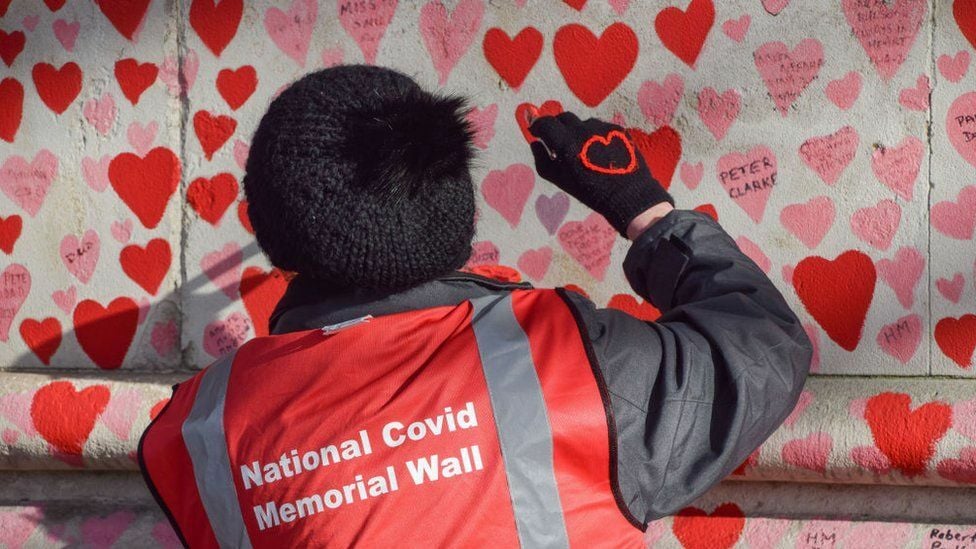UK Covid inquiry questions lack of lockdown planning and impact foresight

The lack of consideration given to the “potentially massive impact” of lockdowns on society before the pandemic has been highlighted by Hugo Keith KC, the lead lawyer for the Covid inquiry. As the investigation into the government’s response to the pandemic began hearing evidence, Keith stated that the UK might not have been well prepared “at all.” He found it “extraordinary” that lockdowns had received little thought, given that 227,321 people have died in the UK with Covid mentioned on their death certificates.
Keith addressed the first public hearing, emphasizing the “death, misery, and incalculable loss” caused by the virus. He questioned whether the impact on the UK was inevitable, given the lack of debate about whether a national lockdown could be needed or avoided. Keith also pointed out the failure to think through the consequences for education and the economy.
The first topic of the inquiry will examine the UK’s preparedness for Covid up to January 2020. Chair Baroness Hallett pledged that the investigation would be the “thorough investigation” that the public deserves. The inquiry will hear from key politicians, civil servants, scientists, unions, health and care organisations, and groups representing victims and their relatives.
Keith remarked that the UK was “taken by surprise” over “significant aspects” of the pandemic, including lockdowns. He stated, “Very little thought was given to how, if it proved to be necessary, how something as complex, difficult and damaging as a national lockdown could be put in place at all.” He also noted the failure to think through the potentially massive impact on education and the economy.
Keith highlighted “shocking” data showing that Covid mortality was two-and-a-half times higher in some of the most deprived parts of the UK than the richest. People in some ethnic minority groups or with a disability were far more likely to be infected or die of the disease. The extent to which these outcomes could and should have been foreseen and mitigated will be a “big question” in the inquiry’s first module.
The wider political environment, including the possible impact of Brexit on emergency planning, will also be considered. Keith asked, “Did the attention paid to the risks of a no-deal Brexit – Operation Yellowhammer as it was known – drain resources and capacity that should have been continuing the fight against the next pandemic?”
The inquiry will also examine if the collapse of the power-sharing agreement in Northern Ireland damaged the ability of authorities to plan and respond to the pandemic. Keith said it was unlikely we will ever know how Covid started or when the first human infection occurred, but “for this inquiry’s purposes, this knowledge does not matter.”
Pete Weatherby KC, counsel for the Covid-19 Bereaved Families for Justice group, said the “closest to an overall plan” to deal with Covid in 2020 was a 2011 document drawn up to protect the UK from an outbreak of influenza. “The families expect the evidence will show⦠little or no ministerial leadership and the chaos of committees which led to poor planning and ultimately a reactive rather than a proactive response to the virus.”
In response to the Brexit claims, a spokesperson for the prime minister said the government would not be responding to every issue raised in the inquiry. Lady Hallett has asked to see ex-prime minister Boris Johnson’s unredacted WhatsApp messages between him and around 40 politicians and officials, but this is being challenged by his successor, Rishi Sunak. The Cabinet Office launched a legal challenge against the request, arguing some of the messages were irrelevant. This is thought to be the first time a government has taken legal action against its own public inquiry.
The UK experienced one of the worst first waves of Covid in Europe in spring 2020. However, by that winter, the UK had been overtaken by many countries in eastern Europe who had seemed to escape the first wave. As of July last year, the UK’s Office for National Statistics placed the UK in the middle of the pack. Covid vaccines have prevented many deaths and serious illness from the virus, with more than 151 million doses administered in the UK.
Latest Thailand News
Follow The Thaiger on Google News:


























